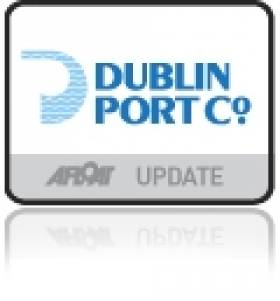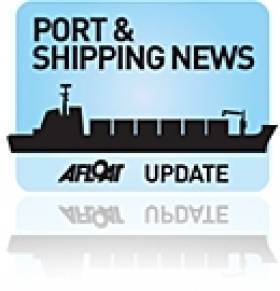Displaying items by tag: Minister Varadkar
Dublin Port Company to Pay Additional €8m Dividend to State
#DublinPORT - Minister for Transport, Leo Varadkar has announced Dublin Port Company will pay an additional dividend of €8m to the State during 2013, bringing the company's total dividend to €15m.
The decision to pay the second special dividend was taken by the Board at its meeting of 1st July 2013 and followed on from a request from the shareholders at the Company's Annual General Meeting that it consider making an additional contribution in line with requests made generally of the State commercial sector.
Responding to this announcement, the Minister said: "I am delighted that Dublin Port is in a position to make this special additional dividend of €8m, on top of the normal dividend payments of €7m already made this year.
"As part of the National Ports Policy which I launched earlier this year, all of our State commercial port companies were asked to set up a clear dividend policy. Arising from this, Dublin Port has set out to the Department its dividend policy for the coming years.
Today's special dividend payment forms part of that. In future years, Dublin Port has committed to making a dividend payment of 30% of distributable profits.
"The fact that Dublin Port is capable of making such a significant return to the Exchequer is testament to the Board, management and employees of this vitally important State asset and I thank the Company for this special dividend contribution."
Lucy McCaffrey, the Company's Chairperson said: "I am delighted that it is possible this year for Dublin Port Company to be in a position to look after the interests of our shareholder to the extent that we have".
The decision to declare the additional €8m special dividend was taken after consideration of the other calls on the Port's cash, particularly our need to invest for the future.
Dublin Port Company is profitable and has a relatively low debt burden and remains in a position in the coming years to fund major infrastructural investment.
"Our commitment to our shareholder and to investing for the future parallels our ongoing commitment to control and reduce expenditure and keep Dublin Port competitively priced for our customers."
Irish Ports Association Welcomes New Ports Policy
#Ports&Shipping- The Irish Ports Association (IPA) has welcomed the publication by Leo Varadkar, TD, Minister for Transport of the new national ports policy which sets out the policy framework for the future development of the sector, writes Dredgingtoday.com
IPA which is the representative body for the Irish ports sector and an affiliate of IBEC whose Head of Trade and Transport Policy, Pat Ivory said: "Ireland's commercial ports are key pieces of national and regional infrastructure, which will play a key role in economic recovery by facilitating both trade and tourism. It is essential that we have coordinated action across Government departments in implementing the strategy.
"It is important that the alignment of Ports of Regional Significance with local authorities be undertaken in a way that preserves the commercial focus of the ports' operations. This will require harnessing the necessary commercial expertise at local authority level and a clear decision-making framework to be developed to facilitate future port development."






























































